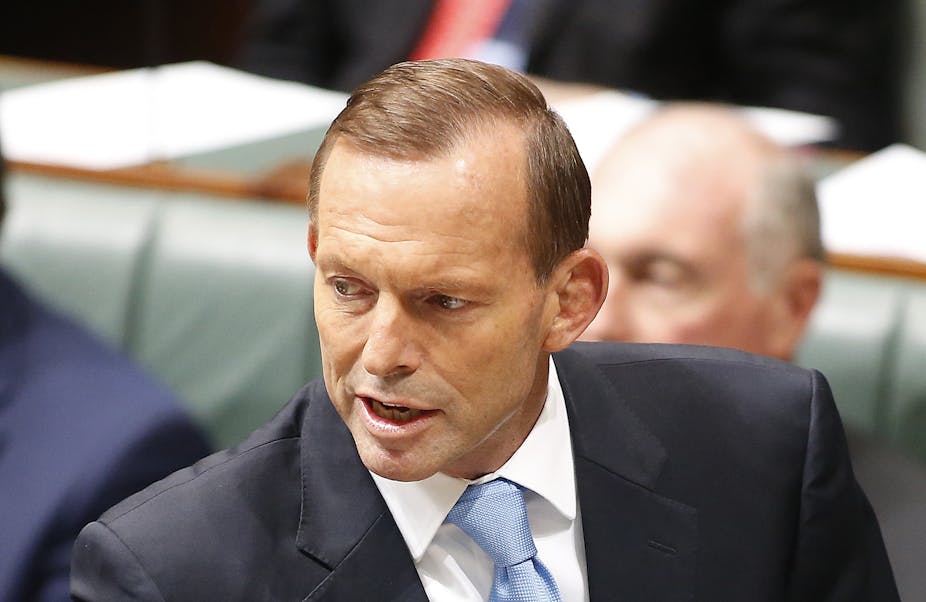Tony Abbott has warned that the rate of increase in spending on health and schools must be reduced “in the longer term”.
He has also pledged that all new spending in the May budget will be fully funded from savings.
As the government promotes debate about putting health, education and welfare expenditure on a sustainable basis, Abbott reiterated that the government would keep its pre-election commitments to maintain health and schools spending.
“But [we] must reduce the rate of spending growth in the longer term if debt is to be paid off and good schools and hospitals are to be sustainable for the longer term.”
In recent days the government has indicated that Medicare changes are being considered.
Addressing the Australia-Canada economic leadership forum in Melbourne tonight, Abbott said that across every area of government, “our duty is to reduce less productive spending in favour of more productive spending, so that taxpayers are always receiving the best possible value for their money”.
Signalling efforts to get people off welfare into work, he said new spending in the budget “will be directed to making our economy more productive and our people more fulfilled through more engagement in the economy.
"Let’s face it, the best form of welfare is a job, and keeping people on welfare who could otherwise be active is not a lasting favour.”
He said he planned to visit Canada later this year. “Scarcely less than Washington or London, Ottawa should be a destination for Australian officials because there are few big issues where we don’t have a similar outlook.”
Enlisting Canada’s help for Australia’s G20 pitch, Abbott said he was confident the two countries would have a shared perspective and do what they could to persuade other governments to get taxes and regulation down and productivity up.
Australia’s intention was to lead by example. By the time of the November leaders meeting in Brisbane, “the carbon and mining taxes should be gone, the company tax cut should be legislated, the parliament will have dedicated two days to repeal and deregulation, and the annual infrastructure statement will have been made.
"It’s likely that two of the three major free trade agreements that are Australia’s priority would be concluded and that some of the $400 billion in projects that have received environmental approval since the election will be underway.”
In its budget submission released today, the Business Council of Australia has said that “extraordinary policy effort” is now needed to drive long term growth, in light of the “structural headwinds” and challenges that the economy faces.“
The BCA says the Labor opposition should not try to "wedge the government into ruling out structural changes”. Australia would benefit from a bipartisan approach to fiscal discipline, acknowledging the pressures on the budget’s spending side and the uncertainty about future revenue.
BCA Chief Executive Jennifer Westacott said that “it’s time to stop the budget strategy from being used as a political football and for the Australian parliament to agree on the need for fiscal discipline and policies to support growth.”
At the weekend Treasurer Joe Hockey won support from G20 nations for the aim of adding 2% to world economic growth over five years. The government used the G20 meeting of finance ministers and central bank governors to reinforce its argument for significant domestic reform.
The BCA submission calls for the coming budget to have a “bold and comprehensive” long term economic agenda, although Westacott acknowledged that it could only make a start on measures.
“What people want is the plan to grow the economy and get the budget under control. It can’t all be done in this budget but the government needs to get out a plan,” she said.
“It should be aiming to get to an annual growth rate of around 3.5%.”

